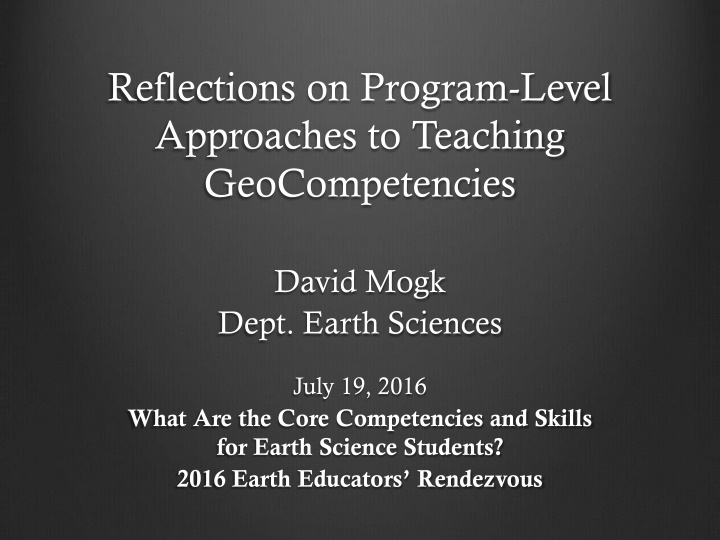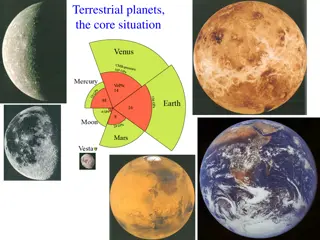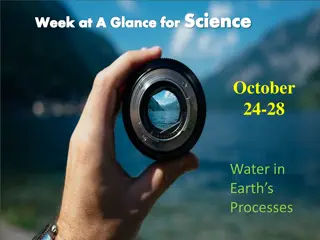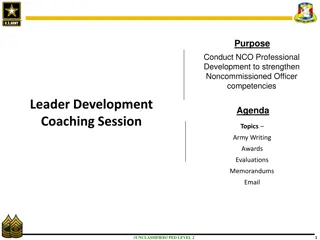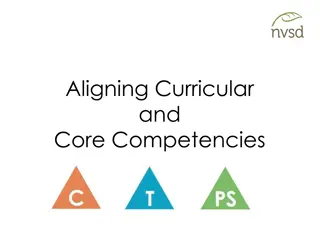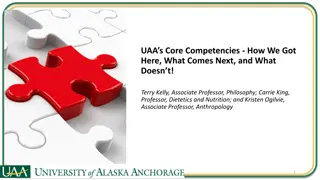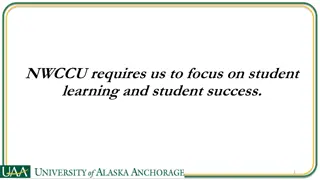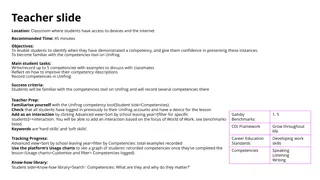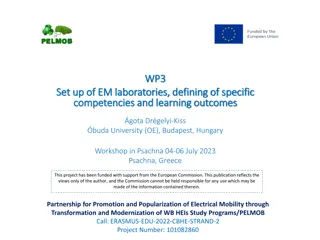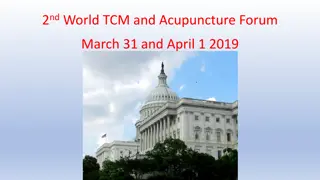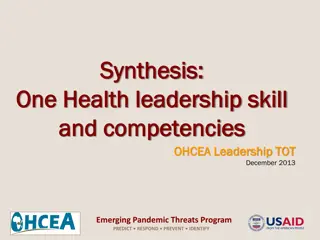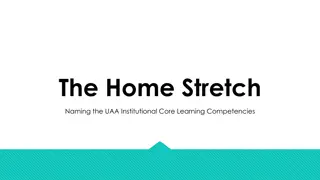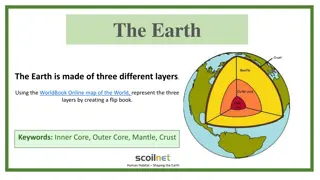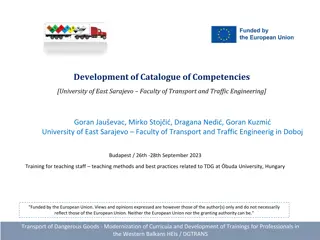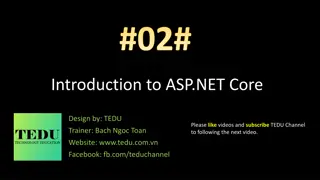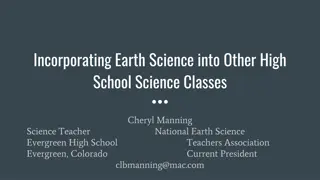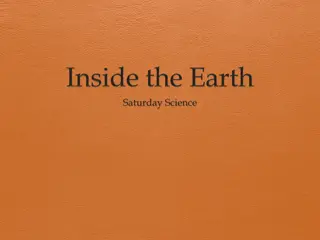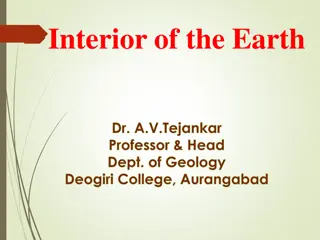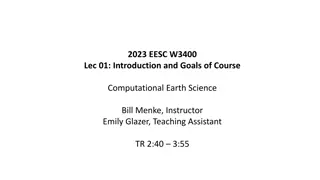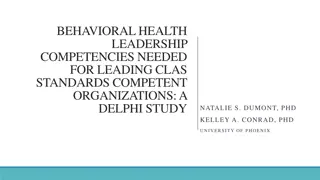Core Competencies for Earth Science Students
In this reflection, David Mogk discusses the essential skills and competencies needed by Earth science students, including understanding geologic context, critical thinking, data integration, and communication. Expectations for the workforce in geosciences are also outlined, emphasizing quantitative skills, communication abilities, and problem-solving. The approach advocates for a holistic view of student learning goals, program alignment, and course sequencing to foster lifelong learning and skill mastery in Earth sciences.
Download Presentation

Please find below an Image/Link to download the presentation.
The content on the website is provided AS IS for your information and personal use only. It may not be sold, licensed, or shared on other websites without obtaining consent from the author.If you encounter any issues during the download, it is possible that the publisher has removed the file from their server.
You are allowed to download the files provided on this website for personal or commercial use, subject to the condition that they are used lawfully. All files are the property of their respective owners.
The content on the website is provided AS IS for your information and personal use only. It may not be sold, licensed, or shared on other websites without obtaining consent from the author.
E N D
Presentation Transcript
Reflections on Program-Level Approaches to Teaching GeoCompetencies David Mogk Dept. Earth Sciences July 19, 2016 What Are the Core Competencies and Skills for Earth Science Students? 2016 Earth Educators Rendezvous
The Product Students who can Understand geologic context, apply concepts and skills Ask the next question Know where to look for information Formulate a plan to address the problem Become critical producers and consumers of data Integrate multiple lines of evidence Communicate results; write a report, make a map, develop a GIS . Be life-long learners
Expectations for the Workforce Quantitative skills Communication skills (verbal, written, graphical) Collaborative work (interpersonal skills Systems thinking Integration of multiple lines of evidence Problem-solving; Integrating multiple lines of evidence Research and research-like experiences, Acquisition and use of data, modeling, GIS Applications to societal issues See AGI Workforce Reports: http://www.americangeosciences.org/workforce 2015 Geoscience Employers Workshop http://www.jsg.utexas.edu/events/files/Employers_Workshop_outcomes.pdf
Whole Student Approach Define programmatic student learning goals Embed assessments throughout the program to demonstrate mastery Align course sequences to reinforce and anticipate essential concepts and skills Prepare students to be life-long learners Assign responsibilities to ensure these goals have been met.
ALIGNMENT Review course sequences Scaffolded and articulated? Can students see a clear path towards graduation?
Recurring Themes History and Evolution of the Earth System Biological and tectonic evolution Historical Geology, Vert and Invert Paleo, Tectonics Composition and Architecture of Earth Earth Materials, Mineralogy, Petrology, Sed/Strat, Structural Geology Surface of Earth and the Critical Zone Weather and Climate, Geomorphology, Hydrology Human Dimensions Human, Regional, Resource, Economic Geography GIS and planning Hazards and Earth Resources; units in numerous courses
Student Learning Outcomes and Program Assessment the Matrix Approach Curricular Claims: Earth System Approach Multiple exposures to key concepts Reinforcement of skills Workforce expectations GIS Communication Problem-solving Habits of Mind Articulation of curriculum Formative assessment Changes in emphasis Gap analysis Yr 1 Yr 2 Yr 3 Yr 4 Grad Concepts Habits of Mind Skills Professional Development
Resources EER Workshop on Creating The Matrix http://serc.carleton.edu/earth_rendezvous/2015/mini_worksho ps/mw10/index.html A Curriculum by Design (blog on course alignment in curriculum) http://serc.carleton.edu/earthandmind/posts/curriculum_desi.h tml A Curriculum by Design 2 (blog on matrix development)http://serc.carleton.edu/earthandmind/posts/curri culum_desi2.html Building Strong Departments http://serc.carleton.edu/departments/index.html
